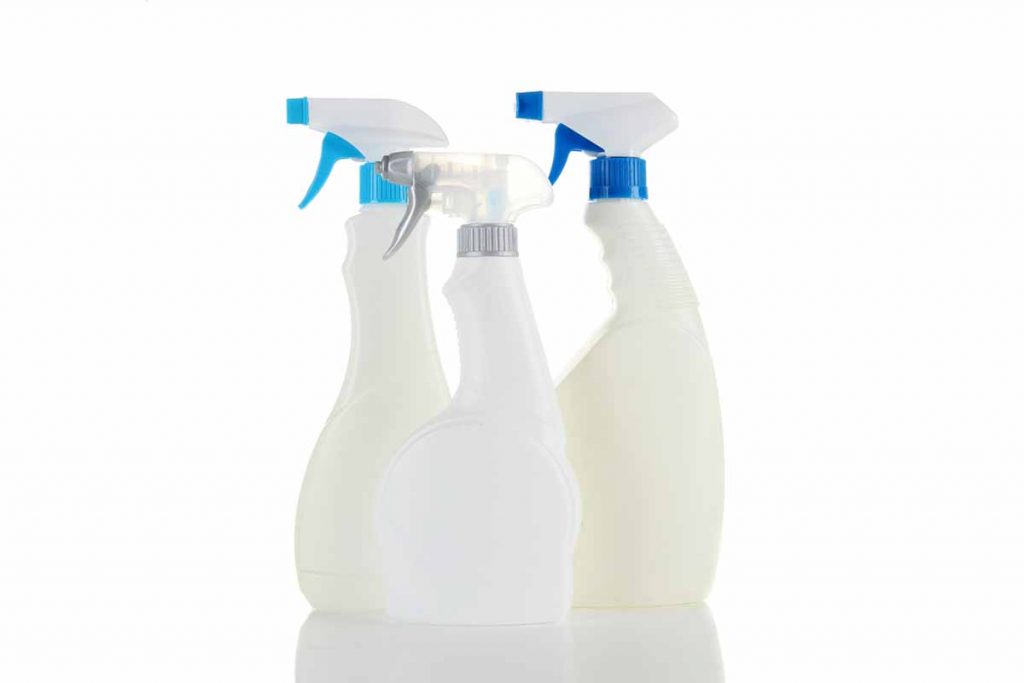
The RecyClass platform is focused on encouraging producers to sell packaging that’s compatible with current plastics recycling processes and technologies. | Africa Studio/Shutterstock
A European trade association has published step-by-step guides allowing packaging producers to rate the recyclability of their products and receive a certification.
The RecyClass platform, which is managed by the Belgium-based Plastics Recyclers Europe (PRE), released the methodology documents on June 4. They include examples of packaging and how those products would rate for recyclability.
Similar to the Association of Plastic Recyclers (APR) Design Guide for Plastics Recyclability program, the RecyClass platform is focused on encouraging producers to sell packaging that’s compatible with current plastics recycling processes and technologies (APR owns Resource Recycling, Inc., publisher of Plastics Recycling Update).
The recently released methodology documents are based on the existing RecyClass Design for Recycling Guidelines and Recyclability Protocols. The documents include two different recyclability assessments, both of which can be used by auditors to provide brand owners with recyclability certifications.
In the first assessment, called Design-for-Recycling Certification, packaging producers are walked through how to give their packaging an A through F grade based on its design and composition. “A” means the packaging is highly recyclable, and an “F” means it’s completely incompatible with the recycling system and must be landfilled or burned.
In the second, called the Recyclability Rate Certification, packaging producers are guided through evaluating just how much of the product is likely to be processed into recycled resin in existing systems across Europe or in a particular region. That assessment has users plug data into a math formula to calculate a percentage, with 100% being a perfect recyclability score.
RecyClass provides examples of packages and how they would rate. One example is a PET bottle made up of the following, by weight: clear PET bottle without barrier layer (88%), PP cap (9%), PE label with water-soluble adhesive and limited printing (3%). This bottle gets an “A” grade and recyclability rate of 96.9%.
Another example covers a spray bottle that might hold a glass or countertop cleaner. In the example, the package is made up of the following, by weight: clear HDPE bottle (79%), PE/PP closure (20%), paper label with water-soluble label and limited printing (1%). This package rates as a “B” and gets an 80.7% recyclability rate. The ratings were reduced from 100% because of label and PP separation concerns.
In a third example, RecyClass looks at a pouch made up of the following, by weight: clear multilayer PE pouch (92%) with a PP cap (8%). The pouch film has a 5% barrier layer of EVOH, the printing is done directly on the pouch with a clear color, and printing covers less than half of the surface. This one scores a C and a 55% recyclability rate. Its ratings were dropped because of the difficulty removing all of the food or drink from the package, the presence of EVOH in the film, the impacts of the PP cap on the recycled PE, and the effect of the direct printing on the recycled resin quality.
Program launches in the U.K.
In related news, plastics recycling support organization RECOUP announced it will manage a RecyClassUK program. The nonprofit group described it as the first approved recyclability certification for rigid plastic packaging in the U.K.
“This certification scheme is beginning at a time when the U.K. is going through various consultations and legislative changes designed to incentivise and pressure plastic packaging producers to make their products more recyclable and environmentally friendly,” RECOUP stated in the release. “These changes, most notably, modulated fees through Extended Producer Responsibility and requirements to meet 30% recycled content through a Plastic Packaging Tax, are due to be implemented within the next few years.”
To receive the latest news and analysis about plastics recycling technologies, sign up now for our free monthly Plastics Recycling Update: Technology Edition e-newsletter.
More stories about industry groups
- APR alliance aligns global packaging design guidance
- APR applies pressure on PET imports, tariffs
- Colorado approval signals path forward for PRO choice